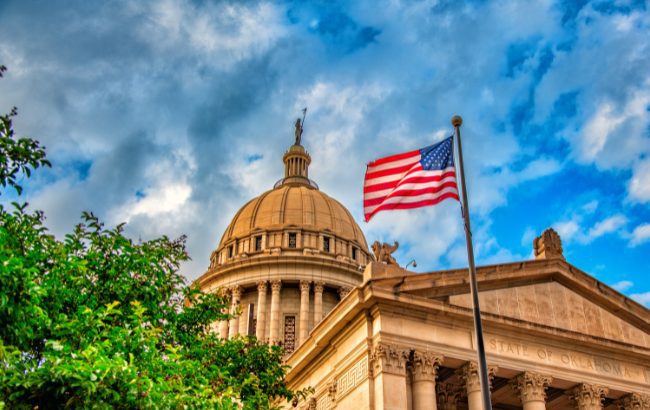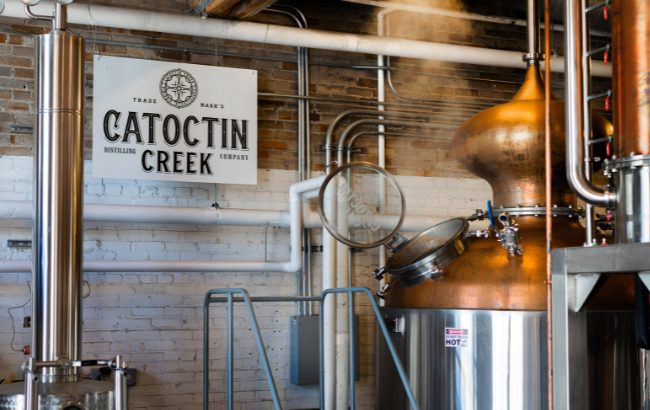US government shutdown puts spirits sector on ice
By Nicola CarruthersThe US government’s shutdown has wreaked havoc on the country’s spirits industry because the TTB is one of the hardest-hit agencies.

In October, the US entered a government shutdown – the third under president Donald Trump – disrupting industries nationwide. For the spirits sector, the timing couldn’t have been worse, as the closure halts crucial federal approvals during the industry’s busiest trading season. The shutdown began after Republican and Democratic officials failed to reach a funding agreement before the start of the new fiscal year on 1 October, cutting off funds to most federal agencies.
Among the hardest hit is the Alcohol and Tobacco Tax and Trade Bureau (TTB), the agency responsible for issuing permits, approving formulas and labels, and collecting taxes on distilled spirits.
Distillers in the US cannot operate without a TTB‐approved permit, and no spirit can legally enter the market without one. Every product must obtain a Certificate of Label Approval before bottling and interstate distribution, as required under the Federal Alcohol Administration Act. With the TTB shuttered, these vital processes have ground to a halt.
The Distilled Spirits Council of the US (Discus) has warned the freeze would have “a detrimental effect” on the industry, delaying production timelines and jeopardising new product launches.
According to two October polls by the American Craft Spirits Association (ACSA), one‐third of surveyed members were planning to launch new products during the last quarter of this year, and nearly all of them were affected by the shutdown. The average estimated revenue lost was around US$40,000, with four out of 10 craft distillers predicting losses of nearly US$100,000 or more. The same surveys revealed 67% of distilleries were awaiting label approvals, and 24% were waiting for formula authorisations when the shutdown began.
The shutdown comes on top of wider challenges for the US alcohol sector and the hospitality industry, which are experiencing rising costs, a slowdown in sales, and tariffs.
“Distilleries were really hopeful that the sales during this period leading up to the holidays would help make up for the deficit that they’ve experienced the first three quarters,” says Margie AS Lehrman, CEO of the ACSA, which recently released its 2025 Craft Spirits Data Project report.
The report showed the number of active craft distillers has fallen by 25.6% to 2,282 as of August 2025, compared with 3,069 in the same month last year. In 2024, the US craft spirits category declined for the second year in a row. The sector reached 12.7 million cases last year (versus 13.5m in 2023) and US$7.58 billion in sales – a volume decrease of 6.1%, and a value drop of 3.3%.
Static inventory
“In the DC area alone, when you have federal employees not going to work, the restaurants are really suffering right now, which means that the bars probably have less being sold, which means that inventory is not moving,” Lehrman adds. “So there’s going to be backlogs at a time where we all know that distilleries have over‐produced. Without the ability to move stock, it puts the industry in a further crisis in terms of what the bottom‐line sales will look like by the end of the year.”
She warns that craft distillers are particularly vulnerable: “They’re the ones who are traditionally innovating, and they rely on new product launches to sustain sales. They’ll be severely impacted by this shutdown.” Despite the suspension of services, distillers are still required to pay taxes on time, she notes.
The last time that the shutdown happened, distilleries were on the rise, Lehrman says. The number of active craft distillers in the US had grown by 11.5% to 2,046 in the 12 months to August 2019, while volume and value sales soared by more than 25% in 2018.
Chris Swonger, president and CEO of Discus, says the shutdown creates “unnecessary anxiety in society, and a whole host of issues” that reach far beyond the industry. “People not getting paid, the national parks not being open, troops not getting paid,” he says. He adds the impact is significant in the Washington DC area and its surrounding regions, where federal employees are going out less because “they’re not getting a paycheck”.
Virginia’s Catoctin Creek, which is located about an hour from Washington DC, has also seen a major impact in terms of tourism. “Nearly the entire community that we serve is federal workforce,” says co‐founder Scott Harris. “They call them ‘beltway bandits’ here, because all the people who live around the beltway work for the government in one sense or another – either as direct employees or contractors.”

During its 16‐year history, Catoctin Creek has endured three government shutdowns. During past closures, Harris recalls that federal workers knew they would be returning to their jobs eventually and saw it as a “mini vacation”, resulting in a bump in traffic to Catoctin’s tasting room. “People were just hanging out here because they have nothing else to do. Eventually they have to go back to work and they get their back pay, and everything works itself out.”
However, this time, the “tone is quite different” as some jobs have been cut. “These federal workers are feeling very economically unsure, and in that environment, I can’t help but agree that if it was me, I wouldn’t be out spending money on luxury items like whiskey, or going to the tasting room and having drinks. They’re really buckling their belts and trying to figure out what’s going to happen.”
Not enough time
Catoctin Creek is also waiting for labels and formulas to be approved for three products, which it had intended to release in February. Even if the government reopens in November, Harris says there may not be enough time to launch the products.
He also worries about potential staff reductions in the Treasury department, where the TTB sits. “If they cut management or clerical positions, there will be real impacts on how quickly we can get things done,” he warns.
Harris sums up the wider sentiment: “Businesses love certainty. Even if it’s bad, at least we know what we’re dealing with. Right now, we don’t have that. I’m longing for the days when we can get back to a more even level of certainty, economically speaking.”
For now, the industry is in wait‐and‐see mode, hoping the federal government reopens soon, and that the TTB can swiftly work through its growing backlog.
Discus’ focus remains on restoring tariff‐free trade to boost exports and growth. “There’s an opportunity for the Trump administration to help us through trade policy – to get us back to zero‐for‐zero tariffs,” Swonger says. “It’s an effective way for industry to grow and drive economic vitality in the hospitality industry. We’re conveying that very strongly because an export report showing a 9% decline [for US spirits in Q2] is really unfortunate, and we need their help.”
Related news
Quality is becoming synonymous with Indian spirits
